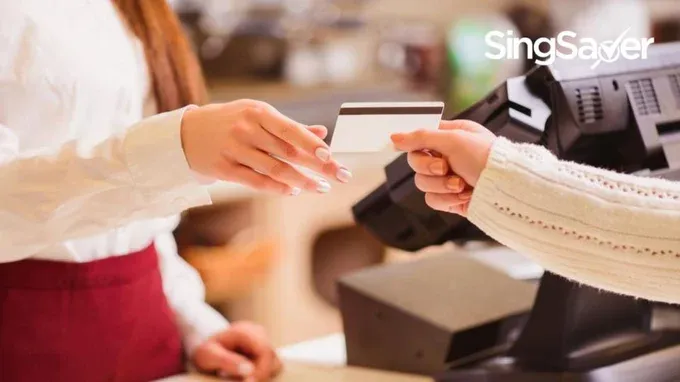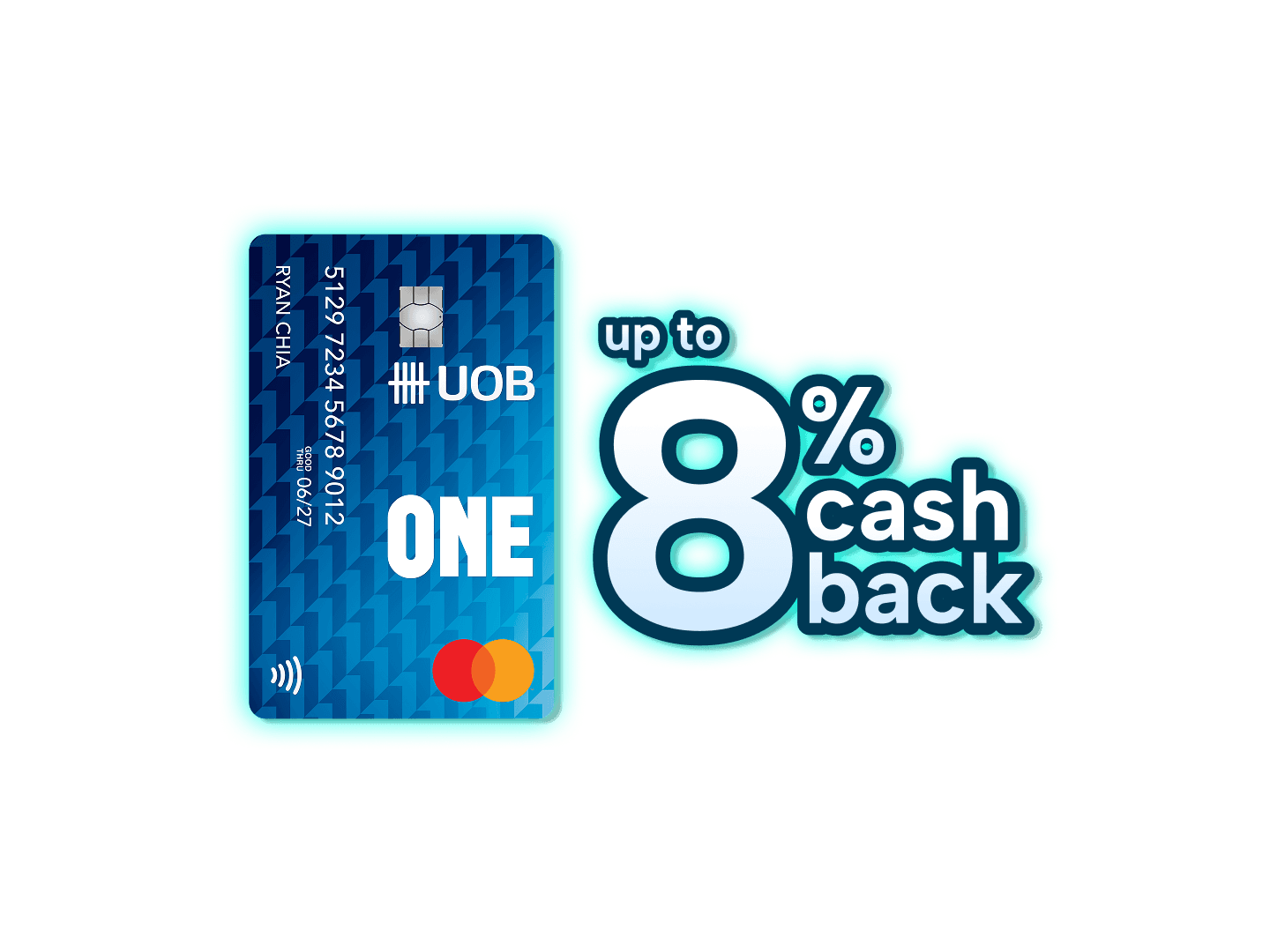Debit Cards Versus Credit Cards in Singapore: Which Should You Use?
Updated: 23 Oct 2025
Debit cards and credit cards can both be used to make purchases or payments, but they each may work better than the other in different situations. Find out more about their specific uses to know exactly when to whip out your debit or credit card to maximise your savings.

With the multiple cards stashed in our wallets, we are expected to be good at #adulting. But many of us may still be unsure about when we should be using our debit card or credit card to maximise the benefits. Some may even wonder if they should still be keeping their debit cards.
To answer these questions, we’ll delve into the differences between credit cards and debit cards and when we should be using them. So don’t toss your debit card straight into the bin just yet!
What is the difference between credit cards and debit cards?
For starters, debit cards only give you access to the current sum of money that you have stored in your bank account. When you make a purchase, the amount is almost instantaneously deducted directly from your bank account, restricting your ability to spend beyond your bank balance.
Conversely, credit cards allow you to take a loan from the card issuer up to a certain limit, usually up to about four times your monthly salary. Your funds remain untouched till the end of the billing cycle when the bank charges you for whatever you’ve purchased with an interest rate.
Why should I carry a credit card?
These are some of the benefits of using a credit card:
Earn rebates and rewards
Typically, there are three types of credit cards - cashback card, miles card or rewards card - that all offer incentives when you make purchases. Cashback cards credit cash directly into your card, while accumulated miles and reward points can be used to redeem flights or free gifts respectively.
Some even offer additional discounts and offers at specific restaurants and retail outlets.
If you’re planning on signing up for a credit card, check out SingSaver’s latest sign up promotions to clinch cashback deals and freebies while you’re at it.
For emergency funds abroad
Aside from losing your luggage, one of the worst things that can happen overseas is when you realise you’ve blown your budget and you need someone to send over some money ASAP. In such a circumstance, credit cards can come in handy.
If you’re already planning for that long-awaited vacation once the pandemic settles down, check out our best credit cards to stack up on air miles here.
Make online purchases
Though most sites allow both debit and credit cards as a payment option, there could still be instances where a credit card - mostly either a Mastercard, Visa, or American Express card - may also reward you more for online shopping with points or cashback.
On top of that, some credit cards like the OCBC Titanium Rewards Credit Card even offer free e-commerce protection to ensure that your items arrive safely without defects, especially if the seller does not grant you a refund in these circumstances.
For fringe benefits of using credit cards
Aside from cashback, miles or reward points, credit cards also offer a host of fringe benefits.
Businessmen who are always flying for work-related trips can enjoy concierge services, travel insurance, and even free airport lounge access that some credit cards offer, while others are also equipped with fraud protection, where fraudulent transactions will be covered and reimbursed by the bank.
Build credit score
If you’re at the phase of life where you need to take a loan from the bank to fund your first car or Build-To-Order (BTO) flat, then getting a credit card would be useful to build your credit score. Your credit score determines how confident the bank is in your ability to repay the loan on time and diligently, so a favourable credit score would have your loan approved faster.
For tips on how to achieve a high credit score, click here to find out more.
Why should I not carry a credit card?
Here are some disadvantages of credit cards:
High interest rates
While you may think it’s fantastic to be able to afford anything you want without having the hard cash on hand, repayments to the bank come with a high interest rate if you are unable to pay in full before the due date. This is especially so for big-ticket purchases like a house or car, where the interest compounded can result in extra tens of thousands.
Credit card fees
Aside from the annual fees that most credit cards charge, there are also late payment fees of about S$100 when you are unable to pay the minimum amount by the due date, as well as cash advancements/withdrawal fees when you draw from the credit limit. Other fees include card replacement fees and foreign transaction fees.
| Pros of credit cards | Cons of credit cards |
| Earn rebates and rewards | High interest rates |
| Emergency funds abroad available | Credit card fees |
| Easily make online purchases | |
| Fringe benefits such as free airport lounge access | |
| Build credit score |
Why should I carry a debit card?
Pros of keeping your debit card:
Spend within your means
At one point or another, we’ve probably gone down the rabbit hole of splurging on a luxury item that costs way more than our budget. When that happens, sticking to your debit card will be your best bet at forcing yourself to spend within your means.
No annual fees
Utilising your credit card helps if you want to cut down on the annual fees that most credit cards charge, which generally range from $128 to $300. This helps you save a significant amount each year.
Take advantage of applicable rewards
Debit cards sometimes offer rewards or discounts when you use a specific card at a specific store or restaurant. Some of these include the DBS Visa Debit Card that grants you 3% cashback when you make online purchases or pay for transport, and the UOB Debit Card that gives you 3% cashback when you make purchases at any Dairy Farm outlet.
You have rollover debt to pay off
If you have an outstanding debt you need to pay off, credit cards should not be your best friend, as you might end up accumulating even more debt, especially with the high interest rates imposed. Instead, use a debit card so that any purchase you make will be automatically deducted from your balance.
Why should I not carry a debit card?
Cons of carrying a debit card:
No spare funds
Using a debit card for your purchases may be viable for daily expenses and small purchases, but in the event of an emergency or a big occasion where a large amount of funds is needed, you may not have enough cash lying around. Imagine not being able to get married just because you don’t have enough money - that would probably suck.
No accumulated points
While debit cards nowadays do offer cashback when you shop at different stores, they do not have any points or miles system that could offset future purchases or be used to redeem flights. You may not realise how useful this points system is until you calculate just how many points you can accumulate with your usual spend.
| Pros of debit cards | Cons of debit cards |
| Spend within your means | No spare funds |
| No annual fees | No accumulated points |
| Enjoy rewards such as cashback | |
| Prevent further rollover debt |
Should I carry both cards?
Well, it depends. While most adults can benefit from having both cards in hand, it may not be advisable for students to have a credit card, and they should solely stick to standard debit cards to make purchases. In the age of digital wallets and contactless payments, they can also rely on topping up their PayNow account, GrabPay wallet and the like.
Most credit cards also require a monthly income and charge an annual fee. Since most students are not earning an income yet, it would be difficult to have a credit card approved, unless their parents opt to give them a supplementary credit card.
Fees aside, credit cards may also lead to youth developing bad spending habits if they are not able to manage their finances wisely. On the flipside, it could allow them to take control of their finances at a young age and keep a close eye on their spending. Check out the top student credit cards here.
Key features of credit cards and debit cards
| Credit Cards | Debit Cards | |
| Limited funds | No | Yes |
| Fraud protection | Yes | No |
| Annual fee | Yes | No |
| Cashback | Yes | Some |
| Minimum spending | Some | No |
Which credit cards to use?
For those planning on getting a credit card for the long haul, there probably isn’t one card to accommodate your every need. As such, you can prioritise the must-have features of a card to narrow down your choices. Alternatively, you can get multiple credit cards to complement one another.
For example, you may use the CIMB Visa Signature to reap points and rebates if you’re big on online shopping, while reserving your HSBC Revolution card for the low foreign transaction rate when you’re travelling. Before you scramble to get your hands on 10 different cards, do bear in mind that each card you apply for has an annual cost that can amount to quite a large sum.
If you’re sourcing for a card with a specific use, refer to our guides to help you out:
- Credit cards for grocery shopping
- Credit cards for dining
- Credit cards for shopping
- Credit cards for online shopping
- Credit cards to use as your EZ-Link Card
- Credit cards to use for Grab
- Credit cards to pay utility bills
- Credit cards for overseas spending
Which debit cards to use?
On the other hand, debit cards are by far simpler to choose from than credit cards, though they have different features like the cashback rate and minimum spending that some may look out for.
For one, the POSB PAssion Card is an extremely popular choice, offering 4% cashback when you spend at Guardian, Cold Storage and Giant. However, you’ll need to spend a minimum of S$400.
Alternatively, there’s the Citibank Debit Mastercard that does not have a minimum spending each month, but also will not reap you any cashback.
